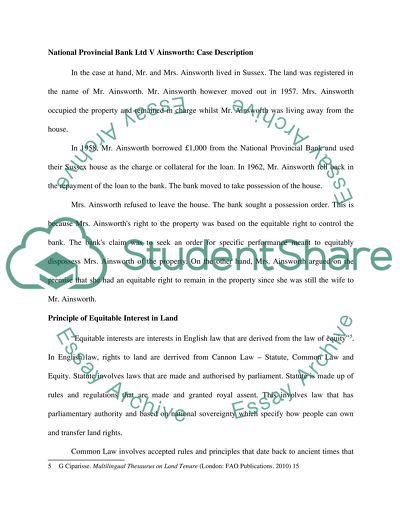Cite this document
(“Land Law Essay Example | Topics and Well Written Essays - 2500 words - 5”, n.d.)
Retrieved from https://studentshare.org/law/1623951-land-law
Retrieved from https://studentshare.org/law/1623951-land-law
(Land Law Essay Example | Topics and Well Written Essays - 2500 Words - 5)
https://studentshare.org/law/1623951-land-law.
https://studentshare.org/law/1623951-land-law.
“Land Law Essay Example | Topics and Well Written Essays - 2500 Words - 5”, n.d. https://studentshare.org/law/1623951-land-law.


